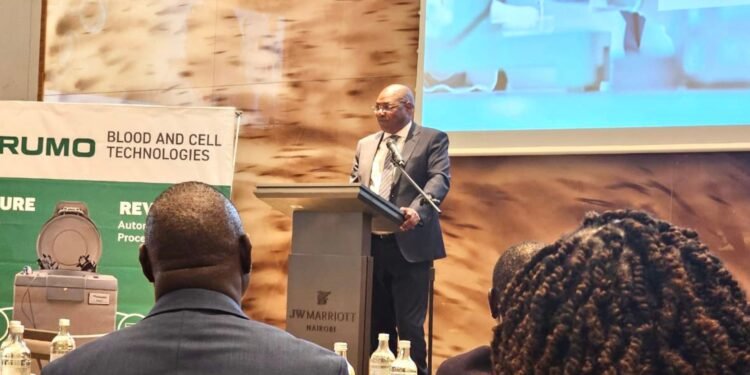NAIROBI, Kenya (BG) — Kenya is set to introduce whole blood automation technology to modernize its blood transfusion services and improve access to safe blood across the country.
The announcement was made by Harry Kimtai, Principal Secretary for Medical Services, during the Africa Technology Day, hosted by Terumo Blood and Cell Technologies in Nairobi, according to a media release from the Ministry of Health on Thursday.
Addressing delegates from across Africa and representatives from Terumo Corporation Japan, Kimtai emphasized the central role of blood in strengthening health systems, noting that timely access to safe blood can save lives in critical situations such as surgery, childbirth, cancer treatment and the management of sickle cell disease.
“Blood is a life-saving resource. Without it, many medical services would come to a halt,” said Mr. Kimtai. “Through automation, we will improve the efficiency, quality, and sustainability of blood services in Kenya.”
The automation technology by Terumo will enable faster and higher-quality processing of donated blood, with the added benefit of reducing wastage.
Once fully deployed in Kenya’s regional blood centers, the technology will extend the shelf life of red blood cells from six days to 45 days and allow frozen platelets to last up to two years.
Kimtai recognized the advancements of countries like Zambia and Uganda in implementing modern blood technologies and urged other African nations to emulate their example.
“Africa has an opportunity to leapfrog in technology, rather than follow traditional evolutionary paths,” he said.
He appealed to the private sector, learning institutions, and the public to support voluntary blood donations and move away from dependence on high school donors.
“Blood is a gift we all have — and one we can give freely to save lives,” he noted.
The event brought together stakeholders from across the continent to explore innovations in blood management, with Kenya positioning itself at the forefront of modernizing health systems in line with the universal health coverage agenda.




